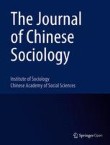The historical dichotomy between production and consumption as separate entities within the social system is undergoing a profound transformation. With the emergence of digital intelligence technology, we are witnessing an era of social innovation that is redefining the traditional roles of these domains.
In this new landscape, the lines that once distinctly separated production from consumption are becoming increasingly indistinguishable. The two are now engaged in a dynamic and reciprocal relationship, characterized by mutual influence, integration, and symbiosis.
Innovations in production methods are not only shaping consumer behavior but also influencing their ideas, habits, and lifestyle. This is particularly evident in the domestic service industry, where workers actively guide and shape consumer needs. In the platform economy, which prioritizes user traffic and online sales, the consumption patterns of internet celebrities and KOLs (Key Opinion Leaders) are a form of labor and production in themselves. They export culture, notions, ideas, and lifestyles to potential consumers through their personal consumption preferences, thereby influencing the market.
Conversely, the demand for consumption upgrading has broadened the scope of production and labor. In the dot.com industry, for instance, consumer preferences and attention, as reflected in user traffic, directly impact the labor process of producers. Many internet companies base their decisions on whether to continue developing various intangible products on the volume of user traffic. They also adjust their performance evaluation methods in accordance with the trends indicated by user traffic data. This two-way dynamic illustrates how consumer needs and production processes are mutually reinforcing, driving the evolution of both the digital economy and societal norms.
Concurrently, the intricate interplay between production and consumption has introduced novel challenges. Numerous gig economy workers, paralleling their traditional counterparts, are grappling with excessive overtime, highlighting a pervasive issue in labor practices. Internet celebrities, in their quest to offer emotional and social engagement, often find themselves immersed in the relentless presentation of their personal lives, blurring the lines between privacy and public image.
Meanwhile, the experiential, cultural, and travel consumption trends among younger generations risk escalating into excess, potentially leading to unsustainable practices. Furthermore, consumerism is increasingly legitimized by profound ideologies like aspiration, humanity, resonance, and liberty, which can cloak materialistic pursuits and encourage wider societal adoption of such behaviors.
To navigate the digital society's transition, it's imperative to dissect the intertwined nature of production and consumption. We should investigate how digital production models are reshaping daily routines and, in turn, how consumer habits are influencing product development. Additionally, we must identify the risks of this integration, such as invisible alienation and the rise of consumerism.
These issues necessitate deeper investigation. A range of compelling research topics including but not limited to:
- The impact of digital technology on consumer-producer dynamics.
- The evolving nature of work in the digital age.
- Socioeconomic influences on consumer behavior.
- E-commerce and its impact on consumption trends.
- The rise of consumerism within digital communities.
- Sustainable practices in digital production and consumption.
Submission instructions and timeline:
Nov 30 2024
800 words abstract due
Dec 15 2024
Notification of accepted abstracts
May 31 2025
Full manuscript due
Dec 31 2025
Final revision due
Jan 31 2026
Date of publication
Guest Editor:
JIA Wenjuan, Shanghai University, China
For questions, expressions of interest and to discuss your abstract prior to submission please contact guest editor JIA Wenjuan. E-mail: gm03jwj@126.com
We look forward to reading your submission.
